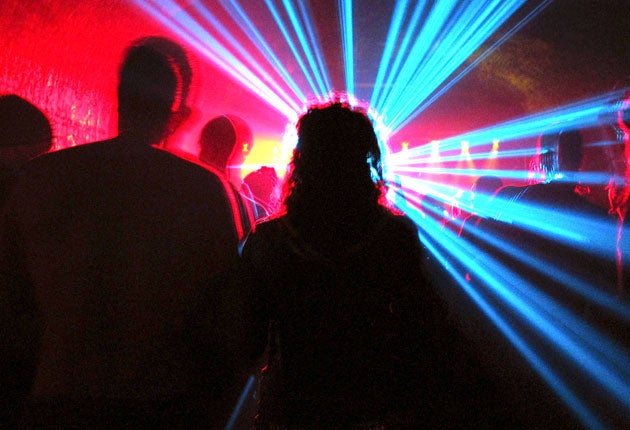Ketamine tops cocaine as new drug of choice
Government advisor ranks class C drug as more harmful than Ecstasy

The horse tranquilliser ketamine is increasingly replacing cocaine as the substance of choice among Britain's recreational drug users, according to charities and experts.
Use of the drug, known as "Special K" or "Raver's Smack", was found to be on the rise in nine out of 20 areas surveyed by the charity DrugScope. The British Crime Survey shows that use of the drug last year increased nationally by 10 per cent on 2006-07.
Once seen as a drug exclusively for the rave and dance scene, its popularity is now growing among Britain's middle-class users due to its price – a gram of ketamine costs £20, half as much as the same amount of cocaine – and the fact that it is seen as a "safe" and "clean" drug.
However, a survey carried out by Professor David Nutt, the chairman of the Government's drug advisory panel, ranks the class C drug as the sixth most dangerous illegal drug available – more harmful than Ecstasy and cannabis. The mistaken belief that the substance is risk-free is encouraging more young people to try ketamine and to take it in increasingly higher doses.
But experts say that it can cause heart or lung failure and point to the fact that it has been linked to 23 deaths between 1993 and 2006. In 2006 it was classified as a class C drug.
Martin Barnes, chief executive of DrugScope, said: "There is worrying evidence that people are experimenting with larger amounts or are even injecting the drug. Evidence of young people using ketamine is a particular concern, especially as many users may underestimate the risks involved."
The popularity of the drug, which can be snorted, swallowed, injected and even smoked, has grown from an estimated 60,000 users between 1998 and 2000 to about 113,000 in 2008. At last year's Glastonbury festival, police seized double the amount of ketamine than they did at the 2007 event.
The DrugScope survey shows that use of drug is increasing in Portsmouth, London, Bristol, Ipswich, Birmingham, Nottingham, Sheffield, Blackpool and Newcastle. And police forces in many of these areas say they are aware of the increased prevalence of the drug. Its popularity is illustrated on the internet, with some users posting videos of themselves, high on the substance, on the video-sharing website YouTube.
Mr Barnes added: "It is becoming very popular and it's a drug that a lot of people are talking about. The very fact that the price is falling shows how popular it is becoming. Three years ago, when we started this study, it was selling for about £30 a gram, now it is £20."
He added: "The fall in price does suggest that the people who are selling the stuff have no problems getting hold of it."
What is ketamine?
Originally used to treat injured soldiers in Vietnam, ketamine is most commonly used now as a horse tranquilliser. It has also been experimented with to treat depression and alcohol and heroin addiction. It was classified as an illegal drug in 2006 by the UK Government. It is usually sold in powder or liquid form for about £20 per gram. Unlike cocaine and heroin, it is not physically addictive, but, like cannabis and Ecstasy, it is psychologically addictive.
User's view: 'You forget about your normal life'
David first tried ketamine as a 20-year-old student at university in London. Now a 27-year-old marketing executive, living in Shoreditch, east London, he still takes the drug once a month. "I see it as a fun, sociable drug," he said. "I do it at house parties or if I'm having a big night out. I used to do cocaine, but I suppose I gradually replaced coke with ket. Coke is much more expensive and it generally makes everyone very loud and aggressive. Ket is different. It costs less and you use it in smaller quantities so it lasts a lot longer. The feeling you get is different too. It makes you feel anaesthetised to your worries. You forget about your normal life and everything is euphoric. Sometimes I've had bad trips, but I've never felt angry when on ketamine. I think it is a lot safer too. I've read it can have long-term effects on your health, but it doesn't seem as dangerous as cocaine. When on coke I used to feel my heart pounding and it didn't feel right. The other reason I changed is because of the classification. I've got a proper job and a career and I don't want to lose that. Ketamine is a class C drug so if I get caught I'm probably only going to get a slap on the wrist."
Join our commenting forum
Join thought-provoking conversations, follow other Independent readers and see their replies
Comments
Bookmark popover
Removed from bookmarks